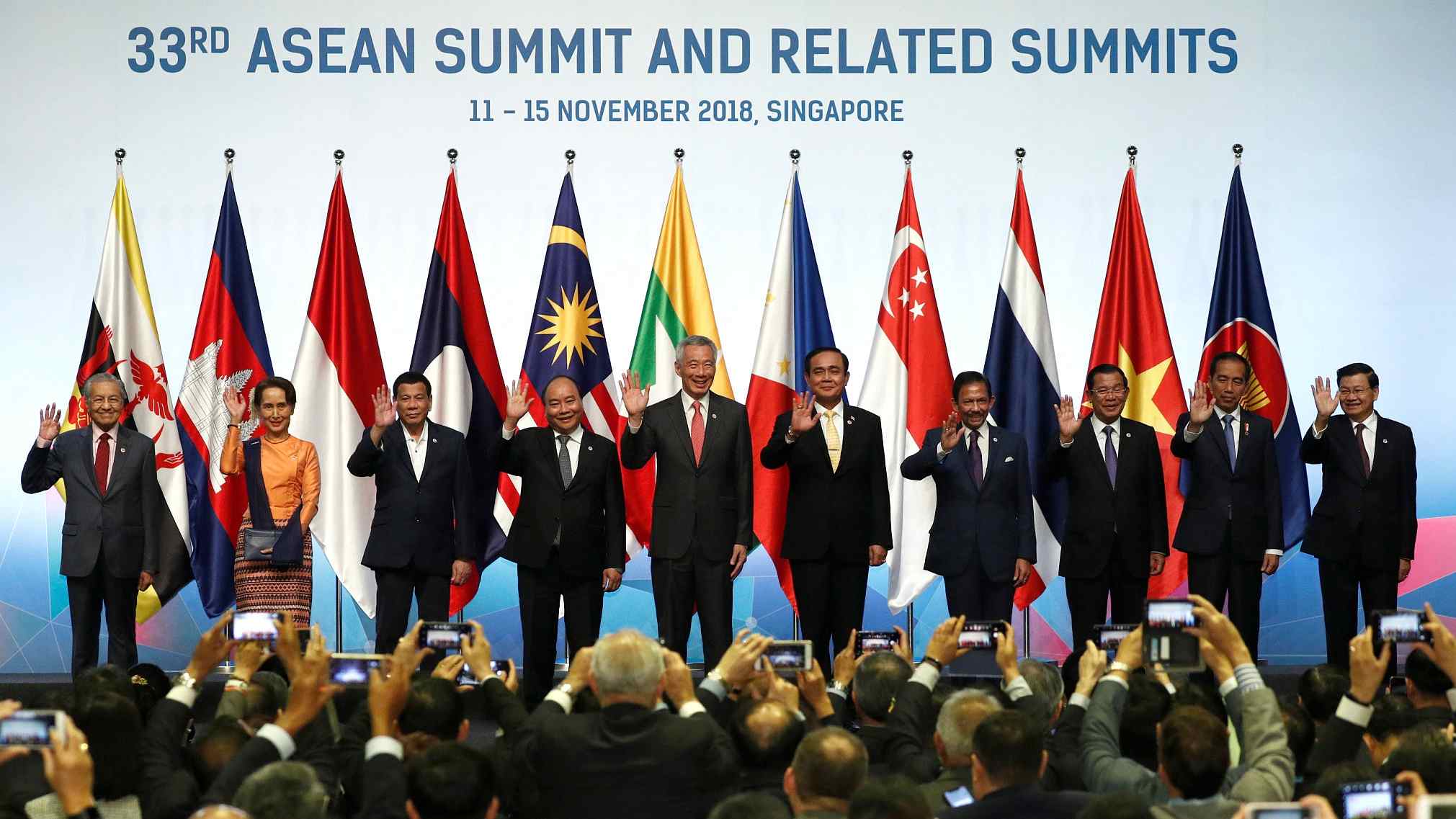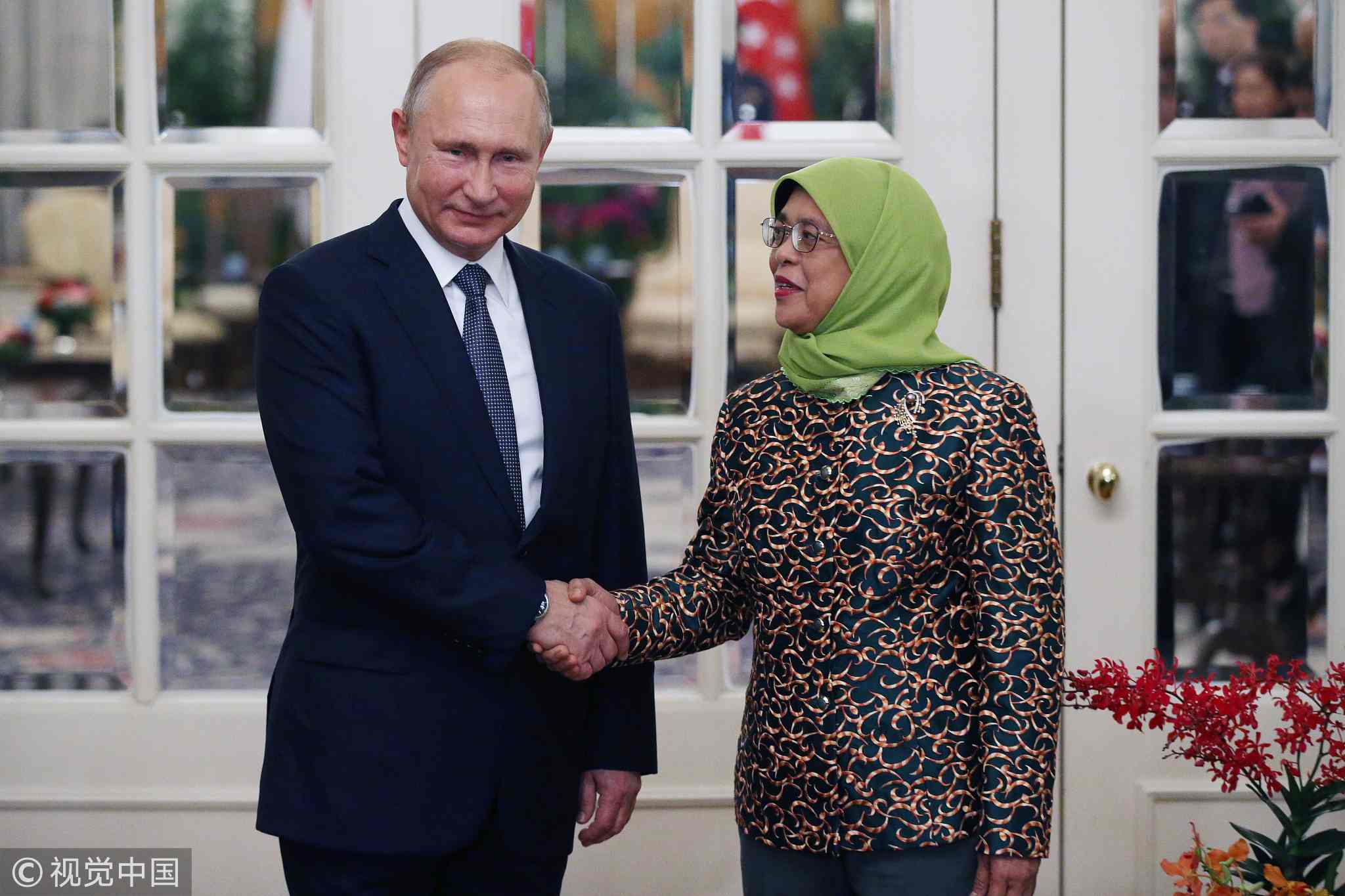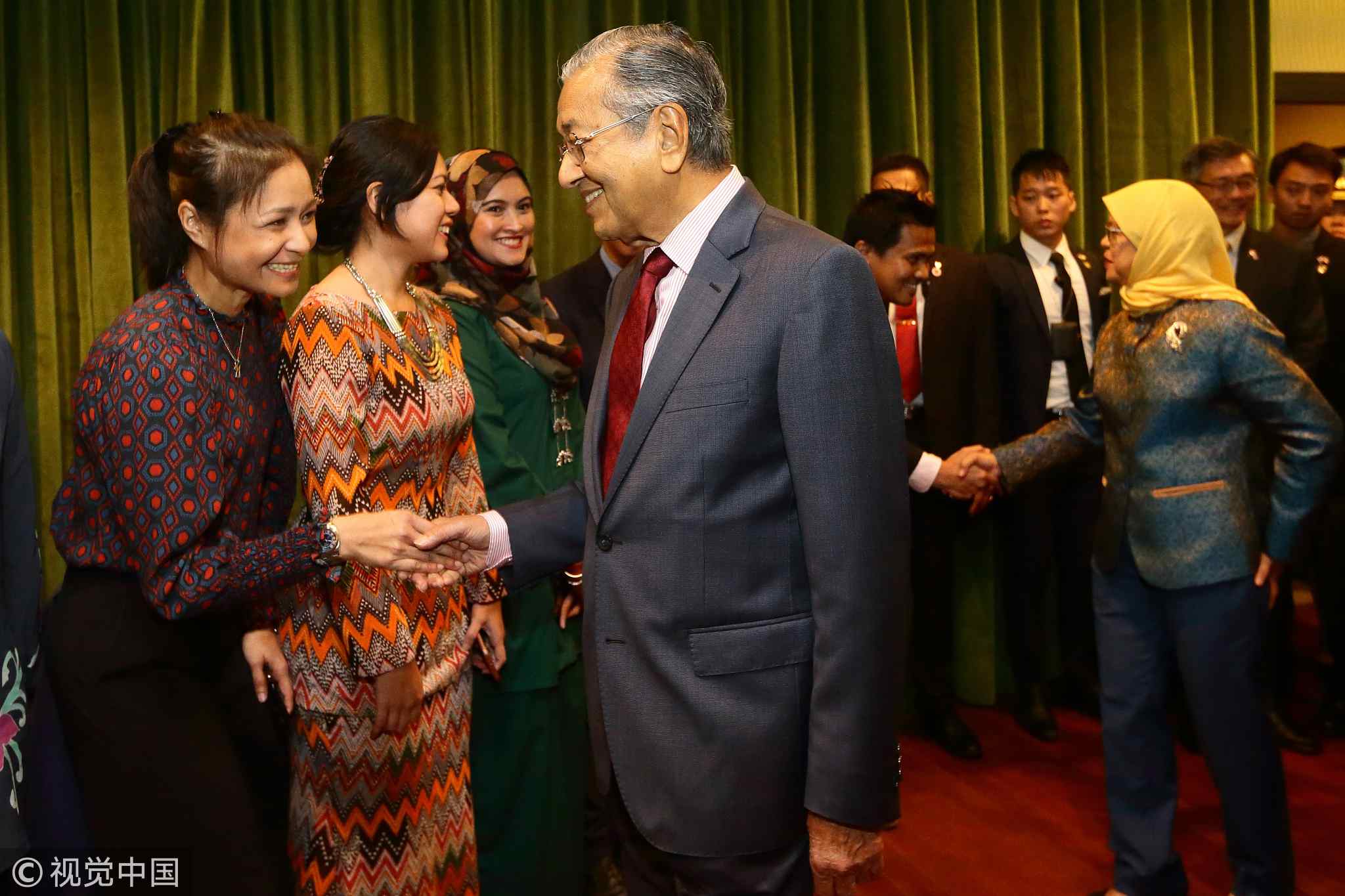
Opinions
21:32, 13-Nov-2018
Opinion: What may be discussed at East Asia Summit
Updated
20:31, 16-Nov-2018
Ashok Sajjanhar

Editor's note: Ashok Sajjanhar is the president of the Institute of Global Studies in India and a former Indian ambassador to Kazakhstan, Sweden, and Latvia. The article reflects the author's views, and not necessarily those of CGTN.
The 13th East Asia Summit (EAS) will take place in Singapore November 14-15. The summit is a unique leaders-led forum of 18 countries of the Asia-Pacific region. It is an initiative of ASEAN and is based on the premise of the centrality of the group.
Heads of State/Government of most of the 18 countries usually attend the summit, which testifies to the importance that member countries accord to deliberations in EAS. At the 12th EAS held in November 2017 in Manila, issues such as maritime cooperation, the South China Sea and the Korean Peninsula were discussed.

Russian President Vladimir Putin attends a welcoming ceremony with Singapore President Halimah Jacob on November 13, 2018, in Singapore. /VCG Photo
Russian President Vladimir Putin attends a welcoming ceremony with Singapore President Halimah Jacob on November 13, 2018, in Singapore. /VCG Photo
However, since then, much has happened in the world and in the region. One of the most worrisome developments since last year has been escalating trade conflicts, particularly between the US and China, under which the US has slapped penal duties on 250 billion dollars worth of goods entering the US market from China.
China has also retaliated by imposing import duties on US products worth 50 billion dollars. This has adversely affected the Chinese economy.
Moreover, not only has the trade war had a big impact on the world's two largest economies, it has also affected the global economy, including in the East Asia region and created considerable anxiety in countries in Asia and Europe. Thus, the trade issue and the theme of upholding multilateralism will likely come up at the summit.
Another area that has received extensive attention and media coverage is the developments on the Korean Peninsula. This year saw the first meeting between a US President and the top leader from DPRK as well as several interactions between the top leaders from both countries on the Korean peninsula.
China has played a useful and important role in moving the negotiations forward. Deliberations are currently perched on a precipice and the issue is likely to come up for intense debate at the EAS.
Security in the South China Sea (SCS) is also likely to take up some time. Although not many significant developments in relations between the regional powers have taken place over the last year, ships of the US and China have come perilously close to each other in the waters of SCS. I believe that countries will discuss ways to ensure security and stability in the region.

Malaysian Prime Minister Mahathir Mohamad meets Malaysian students prior to a special conferment ceremony at National University of Singapore on November 13, 2018. /VCG Photo
Malaysian Prime Minister Mahathir Mohamad meets Malaysian students prior to a special conferment ceremony at National University of Singapore on November 13, 2018. /VCG Photo
Discussions on the Regional Comprehensive Economic Partnership (RCEP) which was launched at the ASEAN Summit in 2012 are likely to come up extensively on the sidelines of the EAS.
There has been intense interest on the part of the 16 participating countries (ASEAN 10, China, Japan, ROK, India, Australia, New Zealand) to conclude the negotiations before the end of the year.
India is experiencing difficulty in opening up its market to exports from other partners because of inadequate market access for its services exports. The 6th RCEP Inter-sessional Ministerial Meeting held on October 13 in Singapore provided significant impetus to the discussions. Under the current situation, it seems that Prime Minister Modi is under pressure to wrap up the negotiations.
In summits, usually more progress is achieved in informal parleys on the sidelines of the plenary sessions than in formal meetings. The same is likely to happen for the EAS. Keeping in view the turmoil and turbulence in international affairs, some significant decisions on the above-mentioned and other important issues can be expected.
(Cover: ASEAN leaders gather for a group photo during the opening ceremony of the 33rd ASEAN Summit in Singapore November 13, 2018. /VCG Photo)
(If you want to contribute and have specific expertise, contact us at opinions@cgtn.com)

SITEMAP
Copyright © 2018 CGTN. Beijing ICP prepared NO.16065310-3
Copyright © 2018 CGTN. Beijing ICP prepared NO.16065310-3